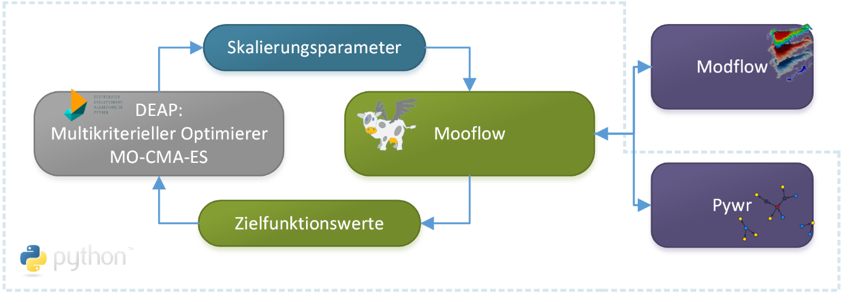Groundwater models are often used to optimize groundwater extraction from spatially distributed wells in a river basin. The open source software Mooflow offers a framework for multi-criteria optimization with the groundwater model MODFLOW for Python.
Simulation-based optimization uses models to describe the effects of changing conditions on complex, real systems. In the search for improved management rules, an optimization algorithm specifically changes decision variables and uses the simulation model to evaluate the effects. In optimizing groundwater management, a model is often used to calculate the effects on groundwater levels through spatially and temporally changed extraction and recharges using wells.
In general, users have to spend a lot of time programming the interface between the optimization algorithm and the simulation model and evaluating the results themselves. The Mooflow optimization framework offers an open-source software solution in the widely used Python programming language for the freely available MODFLOW groundwater model between multi-criteria optimization algorithms and the Pywr water distribution model. Thanks to its economical use of decision variables and parallel model execution, Mooflow is especially suitable for large-scale groundwater models with complex associated water distribution systems.
Mooflow was developed in the GRoW joint project Medwater and applied to a large-scale case study. The multi-target optimization that was carried out comprised 513 extraction wells and 32 recharge wells as well as three goals: to increase sustainability while at the same time reducing supply deficits and supply costs.


